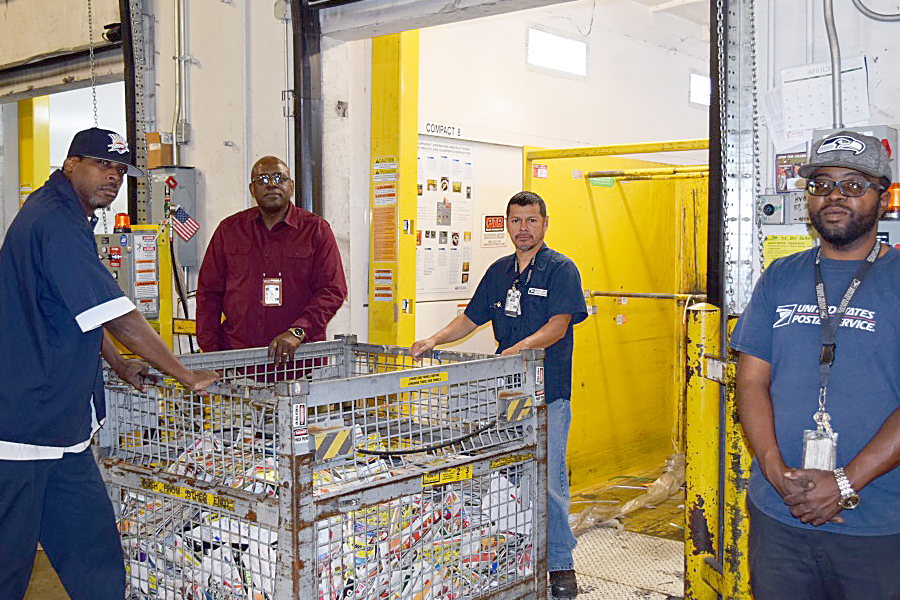Karlett Gilbert doesn’t shy away from a challenge.
Gilbert, plant manager at the North Houston Processing and Distribution Center in Texas, knew she and her employees had to step up their game when USPS introduced its National Recycling Operation (NRO) a few years ago.
She also knew they were up to the task.
“We saw it as an opportunity to produce bigger, better results for our organization,” Gilbert said.
Through the NRO, the Postal Service has expanded and standardized its recycling efforts. This includes using available space on delivery vehicles to transport mixed paper to a network of recycling hubs at USPS plants across the nation.
North Houston is one of the largest hubs, serving several Southern Area districts.
Before the NRO, North Houston recycled about 200 tons of mixed paper each month.
Now the plant averages about 600 tons each month — more than any other USPS facility.
Although this has meant major operational changes for the plant, it has also meant bigger savings. Trash expenses have plunged 20 percent, while annual recycling revenue has increased $35,000.
Also: The amount of waste the plant recycles instead of sending to landfills has soared 90 percent.
North Houston’s success recently helped the facility earn a Postmaster General Sustainability Excellence Award.
Chief Sustainability Officer Tom Day called North Houston “a role model for how other plants can use the National Recycling Operation to reduce their environmental impact while generating more revenue for the Postal Service.”
Gilbert takes pride in her plant’s achievements, including the fact North Houston didn’t need additional equipment or employees to handle its bigger load.
“It took a few years to get on track, but I knew we could balance our operations and get the job done,” she said.
